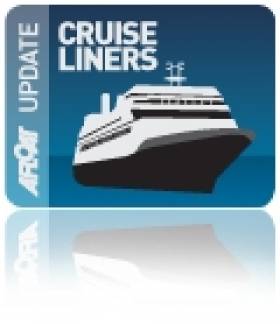Displaying items by tag: MS Quest
Cruiseships Great and Small Lineup for Dublin 2012
#CRUISE LINERS- Around 85 cruiseships are scheduled to call to Dublin Port in 2012, which compares closely to the same number of calls for this year's season, writes Jehan Ashmore.
First to start the season will be Grand Princess, which has the accolade of being the inaugural cruiseship to enter the port with a tonnage surpassing the 100,000 gross tonnes. The milestone was marked by the Princess Cruises call in 2004.
As usual with that number of cruise-callers, the variety of vessels will range from the small to the very large. A prime example is the diminutive expedition cruiseship Quest (1,180 tonnes) and at just under 50-metres long has just over the same number in passenger capacity.
In complete contrast to the ice-strenghtened Quest is the giant Caribbean Princess, a larger sister of Grand Princess, can accommodate over 3,000 passengers and she is make several calls.
Noble Caledonia which has been operating Quest (PHOTO) on successful seasons in Scotland, is to embark on itineraries next season to Ireland, England and Wales for the first time. Her half-sister Ocean Nova has called to Dublin on previous occasions.
For only the second time, Queen Elizabeth is due return to the capital (for report click HERE) in late Summer and in the same week, Hebridean Princess is also scheduled to call. The later vessel in recent years was chartered to Queen Elizabeth II, for a cruise off the Scottish Isles. To read more on the small ship's visit to the port earlier this year click HERE.
























































